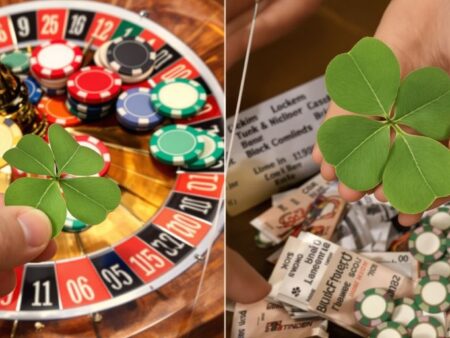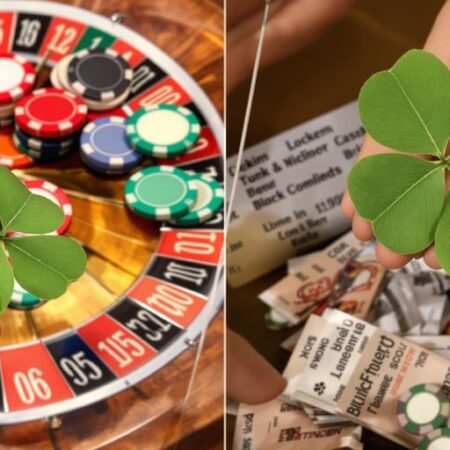Alright, so you’re looking to get into sports betting, maybe make a little extra cash, or just add some excitement to game day. That’s cool. But let’s be real, a lot of people jump in thinking they’ll be hitting home runs right away, and then they get a reality check. It’s not always easy money, and if you go in with the wrong idea, you’ll probably just end up frustrated. This article is all about how to set realistic expectations in sports betting so you don’t get burned.
Key Takeaways
- Most people think they can win a huge percentage of their bets, like 70% or more. That’s just not how it works. Even the best bettors usually win around 55% to 60%. Aiming for a winning percentage slightly over 50% is a much more realistic goal.
- Think of sports betting like a side hustle or a marathon, not a get-rich-quick scheme. You need a plan, and you need to be patient. It takes time to get good and see real results.
- You absolutely need a bankroll management plan. This means setting aside money you’re okay with losing and deciding on a small, consistent amount to bet each time, like 1-2% of your total bankroll. This stops you from losing it all too fast.
- Don’t bet based on who your favorite team is or how you’re feeling. Emotions can really mess with your decisions. Stick to research and logic, and avoid betting on games where you have a personal connection.
- Keep track of every bet you make, win or lose. Looking back at your records helps you see what’s working and what’s not. It’s how you learn from mistakes and get better over time.
Understanding Winning Percentages
The Myth of High Win Rates
So, you’ve probably heard people bragging about winning 70%, 80%, or even 90% of their bets. Let’s be real, that’s mostly just talk. It’s like saying you aced every single test in school without studying. For most people, especially when you’re starting out, those kinds of win rates are just not going to happen. Sports betting involves risk, and if you think it’s a walk in the park, you’re in for a surprise. It’s gambling for a reason, you know? You’re putting money on something that hasn’t happened yet.
The Realistic Target: A Modest Win Rate
Forget about those sky-high win percentages. The real goal is to aim for something achievable. For standard bets, where you’re usually laying -110 odds, you actually need to win about 52.38% of your bets just to break even. Yeah, you read that right. Winning just a little over half your bets means you’re not losing money. Anything above that 52.38% mark? That’s profit, my friend. It’s not about winning every single bet; it’s about winning enough.
Think about it like this: getting a 55% on a test would be a terrible grade, right? Your parents would probably ground you. But in sports betting, winning 55% of your bets means you’re actually doing pretty well. It’s a different world.
Comparing Betting to Academic Performance
| Grade | Academic Performance | Betting Performance (approx.) |
|---|---|---|
| 90-100% | A+ (Exceptional) | Extremely Rare (Sharps rarely exceed 60%) |
| 70-89% | A/B (Great) | Highly Unlikely for consistent profit |
| 55-69% | C/D (Passing/Barely Passing) | Good to Excellent |
| 52.38% | F (Failing) | Break Even |
| Below 52.38% | F (Failing) | Losing Money |
This table shows how different winning percentages translate. What’s a failing grade in school is actually a winning performance in betting. It’s all about perspective and understanding the numbers. The best bettors in the world, the ones they call ‘sharps’, usually win around 55% to 60% of their bets. It’s incredibly hard to find someone who consistently wins more than 60% over the long haul. So, don’t get discouraged if you’re not hitting home runs every time. Focus on that 52.38% break-even point and build from there. It’s more like a marathon, not a sprint to become a millionaire overnight.
The Reality of Professional Betting
A lot of folks get into sports betting thinking they’ll be hitting winners left and right, maybe 70% or 80% of the time. That’s just not how it works, though. It’s easy to get caught up in the excitement, especially after a few early wins, but the reality is much tougher. Even the best in the business aren’t winning at those kinds of rates. You’re up against sharp lines and a lot of variables. It’s more like a marathon, not a sprint, and expecting to get rich quick is a fast track to disappointment.
What the Sharpest Bettors Achieve
So, what does success look like for the pros, the real sharp bettors? We’re talking about people who dedicate serious time and effort to this. They’re not winning 90% of their bets. Honestly, if they can consistently hit around 55% to 60%, they’re doing exceptionally well. That might sound low, but think about it: if you’re winning just over half your bets, you’re likely in the green, especially after accounting for the juice. It’s a grind, and that small edge, maintained over thousands of bets, is where the profit comes from. It’s not about hitting home runs every time; it’s about consistently getting on base.
Long-Term Consistency Over Quick Wins
Forget those dreams of quitting your job after a winning weekend. Real success in sports betting is built over months and years, not days. It’s about sticking to a plan, managing your money wisely, and constantly learning. You’ll have losing streaks, no doubt about it. The key is not to panic or chase losses. Instead, you analyze what went wrong, adjust your strategy if needed, and keep moving forward. That steady, consistent approach is what separates those who stick around from those who burn out quickly. It’s about building something gradually, not striking it rich overnight. That’s the real goal.
Developing a Long-Term Betting Strategy
Look, nobody wins every bet. That’s just a fact. If you’re thinking about sports betting as a way to get rich quick, you’re probably going to be disappointed. Building a successful betting approach takes time, planning, and a good dose of patience. It’s more like a marathon, not a sprint, you know?
Defining Your Betting Goals
First things first, what are you actually trying to achieve here? Are you just looking to add a little extra excitement to game day, or are you serious about trying to make some consistent money? Your goals are going to totally shape how you go about this whole thing. If you’re just playing for fun, you might not need to spend hours researching. But if you want to see real returns, you’ve got to put in the work. It’s like deciding if you want to bake a cake for a party or enter a professional baking competition. Different levels of commitment, right?
Creating a Bankroll Management Plan
This is super important. You need to set aside a specific amount of money that you’re okay with potentially losing. This is your betting bankroll. Don’t ever bet money you need for rent or groceries. A good rule of thumb, and one that many pros stick to, is to only bet a small percentage of your bankroll on any single game. We’re talking like 1-2%. This stops you from blowing through all your money after a couple of bad beats. It’s all about staying in the game for the long haul.
Here’s a simple way to think about it:
| Bankroll Size | Recommended Bet Size (1%) | Recommended Bet Size (2%) |
|---|---|---|
| $100 | $1 | $2 |
| $500 | $5 | $10 |
| $1000 | $10 | $20 |
The Importance of Diligent Research
This is where the real edge comes from. You can’t just guess. You need to dig into the stats, look at team news, injury reports, how teams perform against certain opponents, and even the weather. Understanding matchups is key. For example, a team that’s great at running the ball might struggle against a defense that’s particularly strong against the run. Paying attention to these details can make a big difference. It’s about finding information that others might be overlooking.
Cultivating Patience Through Ups and Downs
There will be losing streaks. It’s inevitable. You might have a week where everything you touch turns to dust. It’s tempting to panic, change your whole strategy, or chase losses by betting more. Don’t do it. Stick to your plan. Remember why you set those goals and that bankroll management rules in the first place. Trust the process. Sometimes, you just have to ride out the bad times. It’s tough, I know, but that’s how you stay in the game and eventually find success. It’s about discipline, plain and simple.
Managing Emotions and Expectations
Sports betting can be a real rollercoaster, can’t it? One minute you’re on top of the world after a big win, the next you’re staring at a screen wondering what went wrong. It’s super easy to let those feelings get the better of you, especially when you’ve got a personal stake in the game. Betting based on how you feel, instead of what the numbers say, is a fast track to trouble. You gotta keep a level head.
Avoiding Emotional Decision-Making
When you’re feeling that rush of excitement after a win, or that sting of disappointment from a loss, it’s tempting to just jump into the next bet without thinking. This is where things go sideways. Making bets because you’re feeling a certain way, rather than because you’ve done your homework, is a bad habit. It’s like driving a car with your eyes closed. You might get lucky for a bit, but eventually, you’re going to crash.
The Impact of Disappointment on Bets
Losing a bet, especially a big one, can really mess with your head. You might feel angry, frustrated, or even a bit desperate. This is precisely the worst time to place another bet. That disappointment can make you want to chase your losses, meaning you bet more or bet on riskier outcomes just to try and win back what you lost. It’s a trap. You’re not thinking clearly; you’re just reacting.
Maintaining Perspective During Losing Streaks
Everyone hits losing streaks. It’s a fact of life in sports betting. What separates the folks who stick around from those who don’t is how they handle these rough patches. Instead of getting discouraged and thinking you’re a terrible bettor, try to see it as a temporary setback. Remember that even the best bettors have losing streaks. It’s important to stick to your strategy and not make rash decisions. Maybe take a short break, review your past bets to see if there’s a pattern, and then get back to it with a clear mind. It’s a marathon, not a sprint, remember?
The Role of Bankroll Management
Think of your bankroll as the fuel for your betting journey. It’s not just random cash; it’s the specific amount you’ve set aside, money you can afford to lose without it messing up your rent or grocery money. Treating this fund with respect is probably the most important thing you can do if you want to stick around and maybe even make some money over time. Without a solid plan for this money, even the smartest picks can go sideways fast. It’s like trying to build a house without a foundation, you know?
Establishing a Dedicated Betting Fund
First things first, you gotta separate your betting money from everything else. Seriously. This isn’t just a suggestion; it’s the bedrock of not going broke. Decide on a total amount you’re comfortable putting into this hobby. This is your bankroll. All your bets, win or lose, come from this pot. It stops you from dipping into your regular savings when you hit a rough patch, which, let’s be honest, happens to everyone.
Determining Appropriate Unit Sizes
Once you know your total bankroll, you need to figure out how much to bet on any single event. This is where the concept of a ‘unit’ comes in. A unit is typically a small percentage of your total bankroll, usually between 1% and 5%. So, if you have $1,000 set aside, a 1% unit would be $10. This approach helps protect you during losing streaks. You’re not betting $100 on one game, which could wipe you out. Instead, you’re betting $10, which stings, sure, but it doesn’t end your betting career.
Here’s a quick look at how unit size impacts things:
| Bankroll | 1% Unit | 3% Unit | 5% Unit |
|---|---|---|---|
| $500 | $5 | $15 | $25 |
| $1,000 | $10 | $30 | $50 |
| $2,500 | $25 | $75 | $125 |
The Benefits of Fixed Unit Betting
Sticking to a fixed unit size, like always betting 1% or 2% of your bankroll, is a really solid strategy. It takes the emotion out of deciding how much to wager. You don’t get greedy after a win and bet bigger, nor do you chase losses by betting more to try and win it all back. It’s about discipline. This method helps maintain consistency and prevents those wild swings that can be so damaging. It’s a simple rule, but it’s incredibly effective for long-term survival and growth in betting. You’re playing the long game, not trying to get rich quick.
Understanding Risk Tolerance and Betting Styles
When you’re getting into sports betting, it’s not just about picking winners. You’ve got to figure out how much risk you’re comfortable with and what kind of bets fit your style. It’s like choosing your own adventure, but with odds. Some folks like to play it safe, others go for the big payout, even if it means a bigger chance of losing. There’s no single right way, but knowing yourself is key.
Betting on Underdogs vs. Favorites
Betting on favorites is usually the more popular choice. These are the teams or players expected to win, and the odds reflect that. You win less money if they pull it off, but your chances of winning are generally higher. Think of it as a steady, predictable income stream, but the amounts are small. On the flip side, there are underdogs. These guys are not expected to win, so the odds are much longer. If they actually win, you get a much bigger payout. It’s exciting, for sure, but you’re going to lose a lot more often than you win. It’s a high-risk, high-reward situation. Most people lose money betting on underdogs because they don’t win often enough.
The Appeal of Long Odds
Who doesn’t like the idea of turning a small bet into a big win? That’s the allure of long odds. It’s the dream of hitting a lottery ticket, but with a bit more skill involved. You might bet on a team that’s a huge underdog, or maybe a parlay bet where you string together several outcomes. If everything hits, you’re looking at a massive return. But let’s be real, the chances of that happening are slim. It’s fun to chase those big wins, but you can’t rely on them. It’s like playing the lottery; you might win big once in a blue moon, but most of the time, you’re just spending money.
Strategic Betting on Futures
Futures bets are a bit different. Instead of betting on a single game, you’re betting on an event that will happen later, like who wins the championship at the start of the season. The odds can be really attractive because a lot can happen between now and then. A team might start strong and then completely fall apart, or an underdog might get hot at the right time. This type of betting requires a different kind of patience and foresight. You’re not reacting to current form; you’re trying to predict a long-term outcome. It’s a gamble, sure, but if you do your homework and get lucky, the rewards can be pretty sweet. It’s a way to stay invested in a season beyond just individual games.
Avoiding Common Betting Pitfalls
The Danger of Ignoring Betting Odds
Look, nobody likes to think about losing, but ignoring the odds is like walking into a dark room without turning on the light. You just don’t know what’s coming. The odds aren’t just numbers; they’re a pretty good indicator of how likely something is to happen. If you skip over them, you might miss out on some really good opportunities, or worse, you might bet on something that has almost no chance of winning. That’s just bad value for your money, plain and simple. To avoid this mess, you gotta learn how to figure out what those odds actually mean in terms of percentages. Then, try to find bets where you think your chances are actually better than what the odds are saying. And seriously, shop around for the best odds; don’t just take the first number you see.
The Pitfalls of Inaccurate Statistics
Statistics are supposed to be our friends in sports betting, right? They tell us who’s hot, who’s not, and what the trends are. But if you’re using bad stats, or if you’re not looking at them the right way, you’re basically setting yourself up for failure. It’s like trying to build a house with rotten wood. You might think you’re making progress, but it’s all going to come crashing down. You need reliable data, and you need to understand what it actually means. Don’t just grab the first number you see on some random website. Make sure your stats are up to date and relevant to the specific bet you’re considering. A little extra effort here can save you a lot of headaches later.
The Flaw in Blindly Following Systems
So, you found this
The Sunk Cost Fallacy in Betting
We’ve all been there, right? You’ve put a decent chunk of change on a game, maybe even a few games in a row, and things aren’t going your way. The losses start to pile up, and instead of stepping back, you feel this urge to double down. This is where the sunk cost fallacy really messes with your head in sports betting.
Recognizing Investment vs. Abandonment
Think of it like this: you’ve invested time and money into a particular betting strategy or even a specific team. When you start losing, it feels like you’re abandoning all that effort. It’s hard to just walk away when you feel like you’ve already put so much into it. But here’s the thing, that money and time are gone, whether you keep betting or not. The real skill is knowing when to cut your losses and not let past investments dictate future, potentially bad, decisions. It’s about recognizing that sometimes, the smartest move is to stop, regroup, and not throw good money after bad.
Avoiding Emotional Attachment to Losing Bets
It’s so easy to get attached to a bet, especially if you’ve done a lot of research or if it’s a team you really like. When that bet loses, it stings. The sunk cost fallacy tells you to keep betting on that same team or that same type of bet to try and recoup your losses. This is a trap. You need to detach your emotions from the outcome. If a particular type of bet or a specific team consistently loses money for you, it doesn’t matter how much you’ve bet on them in the past; you need to stop. Your betting decisions should be based on current value and probability, not on past expenditures. It’s a tough pill to swallow, but admitting a bet was a mistake and moving on is a sign of a disciplined bettor, not a weak one. Don’t let yesterday’s losses dictate tomorrow’s bets.
The Importance of Record Keeping
Keeping good records is like having a personal betting historian. It’s not the most exciting part of sports betting, I know, but honestly, it’s probably the most important if you want to get serious about this. Without it, you’re just guessing, and guessing rarely leads to consistent wins. Think of it as your betting diary, but way more useful.
Analyzing Past Performance
So, what exactly should you be tracking? Everything. Seriously. You need to know what you bet on, when you bet it, the odds, how much you wagered, and, of course, the outcome. This data is gold. It lets you see, with cold hard facts, where you’re actually making money and where you’re just throwing it away. Did you notice you’re killing it on NBA unders but losing your shirt on college football moneylines? That’s the kind of insight record keeping gives you. It’s not about feeling good; it’s about knowing what works.
Learning from Both Wins and Losses
It’s easy to get caught up in the wins, right? You hit a big parlay, and you feel like a genius. But what about the losses? Those are often more educational. Why did that favorite you backed so heavily suddenly collapse? Was it bad luck, or did you miss a key injury report? Tracking helps you dissect these moments. You can look at your losing bets and see patterns. Maybe you tend to bet too much on games with really low odds, or perhaps you’re overvaluing certain teams. Every loss is a chance to learn, but only if you’re paying attention to the details.
Refining Strategies Based on Data
Once you’ve got all this data, what do you do with it? You use it to get better. If your records show that betting on games with specific referees leads to more wins, you lean into that. If you see that your win rate drops significantly after 10 PM, maybe you stop betting late at night. It’s about making smart, data-driven adjustments. This isn’t about gut feelings anymore; it’s about optimizing your approach based on what the numbers tell you. It’s a continuous cycle: bet, record, analyze, adjust, repeat. This iterative process is how you move from being a casual bettor to a more strategic one.
Betting with Your Head, Not Your Heart
It’s easy to get caught up in the excitement of sports, especially when you’ve got a bet riding on the outcome. But here’s the thing: letting your emotions call the shots is a fast track to losing money. We all have teams we love, players we admire, and gut feelings about certain matchups. That’s great for being a fan, but it’s terrible for being a smart bettor.
Avoiding Emotional Decision-Making
Think about it. You’re a die-hard fan of Team X. They’re playing Team Y, who’s been struggling lately. Your heart screams, "Team X is going to crush them!" But maybe the stats don’t quite back that up. Team Y’s defense has been surprisingly solid against teams like X, and Team X has a history of playing down to their competition. If you bet based on your fandom, you might be ignoring crucial data. It’s like trying to fix a leaky faucet with a hammer; it just doesn’t work. You need to approach each bet with a clear head, analyzing the numbers and the situation, not just who you want to win.
The Impact of Disappointment on Bets
Losing a bet, especially a big one, stings. It’s natural to feel frustrated, maybe even angry. The danger comes when that disappointment leads you to try and win it all back immediately. You see a game that looks like a sure thing, a chance to recoup your losses. So, you bet bigger than you normally would, maybe on a long shot or a parlay that’s unlikely to hit. This is chasing losses, and it’s a classic mistake. It’s like digging yourself deeper into a hole. Instead of letting a loss dictate your next move, take a breath. Stick to your plan. A single bad outcome doesn’t change the long-term strategy.
Maintaining Perspective During Losing Streaks
Losing streaks happen. Even the best bettors have them. It’s part of the game. If you’re betting with your head, you understand that variance is real. You’ve done your research, you’ve managed your bankroll, and sometimes, the ball just doesn’t bounce your way. The key is not to panic or abandon your strategy. Instead, view it as a learning opportunity. What went wrong? Were the odds misleading? Did an unexpected injury change the game? Reviewing your losing bets objectively, without the sting of emotion, is how you improve. Treating each bet as an isolated event, rather than a reflection of your overall skill, is vital for long-term success. Remember, it’s a marathon, not a sprint. Keep your cool, stick to your process, and trust that consistent, rational betting will pay off over time.
The Marathon, Not the Sprint Approach
Sports betting, when you get right down to it, isn’t about hitting home runs every single time. It’s more like a marathon, you know? You gotta pace yourself. Thinking you’re going to get rich quick is a surefire way to end up broke and frustrated. Even if you get lucky and win a few bets in a row, don’t get cocky. The odds are, eventually, things will even out. The key is to stick with whatever strategy got you those early wins. Don’t go changing things up just because you had a good run. That’s how you end up making dumb mistakes.
Prioritizing Gradual Growth
Forget about trying to double your money overnight. That’s not how this works. Focus on making small, steady gains over time. It might not sound as exciting as hitting a massive parlay, but it’s way more sustainable. Think about building your bankroll little by little. It’s like saving up for something big; it takes time and discipline.
Setting Attainable Profit Goals
Don’t aim for the moon right away. Set goals that you can actually reach. Maybe it’s winning a certain percentage of your bets each month, or increasing your bankroll by a small amount. When you hit these smaller goals, it feels good, and it keeps you motivated. It’s way better than setting an impossible goal and then feeling like a failure when you don’t reach it. Seriously, small wins add up.
Finding Enjoyment in the Learning Process
Look, you’re not always going to win. That’s just a fact of life, and it’s a fact of sports betting too. You’re going to have losing streaks, and they can be a real drag. But instead of getting all bent out of shape about it, try to see it as a learning opportunity. What went wrong? Could you have researched that game better? Did you get too emotional? Every loss is a chance to get smarter for the next bet. Embrace the grind, and you might actually start to enjoy the process, not just the wins.
Wrapping It Up: Betting Smart, Not Rich Quick
So, let’s be real. Sports betting isn’t a magic ticket to a millionaire lifestyle overnight. Most folks who do well aren’t winning 80% of their bets; they’re aiming for something more like 55%, and that’s considered really good. It takes time, a solid plan, and sticking to it, even when you hit a rough patch. Think of it less like a lottery ticket and more like a slow-burn hobby that could eventually turn into a decent side hustle if you put in the work. Keep your expectations grounded, manage your money wisely, and try to bet with your brain, not just your gut feeling. That’s the best way to enjoy the game and hopefully see some returns over the long haul.
Frequently Asked Questions
What’s a realistic winning percentage in sports betting?
Winning a lot of bets right away, like 70% or more, is super rare. Most pros win around 55% to 60%. Think of it like getting a C in school – it’s not an A, but it’s a passing grade, and in betting, it means you’re actually making money. Aiming for around 52.4% is a good, realistic goal to start with.
How much money should I bet with?
It’s best to set aside a specific amount of money just for betting that you’re okay with losing. Then, only bet a small part of that, like 1% to 5%, on each game. This way, even if you have a bad run, you won’t lose all your money quickly.
Should I bet on my favorite teams?
It’s easy to get excited or upset about games, especially if you’re a fan of a team. But letting those feelings decide your bets can lead to bad choices. Try to be smart and look at the facts, not just your favorite team’s chances.
Can I trust betting systems or predictions?
No single system guarantees wins. Many ‘systems’ you see online are just made up. The best approach is to do your own research, manage your money well, and learn from your wins and losses. Don’t just follow someone else’s advice without checking it yourself.
Why is keeping records of my bets important?
It’s important to write down every bet you make, whether you win or lose. Looking back at this information helps you see what’s working and what’s not. This way, you can learn from your mistakes and get better over time.
Should I expect to make a lot of money fast?
Think of betting like a long race, not a quick sprint. You won’t get rich overnight. Focus on making small, steady gains over time. Enjoy the process of learning and getting better, rather than just chasing huge wins quickly.
What should I do after a losing streak?
Sometimes you’ll lose even when you think you’ve made a good bet. That’s normal. The key is not to get too down about it or change your whole plan after one or two losses. Stick with your strategy, learn from it, and keep going.
What is the ‘sunk cost fallacy’ in betting?
It means if you’ve already lost money on a bet, you shouldn’t keep betting more just because you’ve already put money into it. Don’t let past losses make you make more risky bets. Treat each bet as a new decision.
















